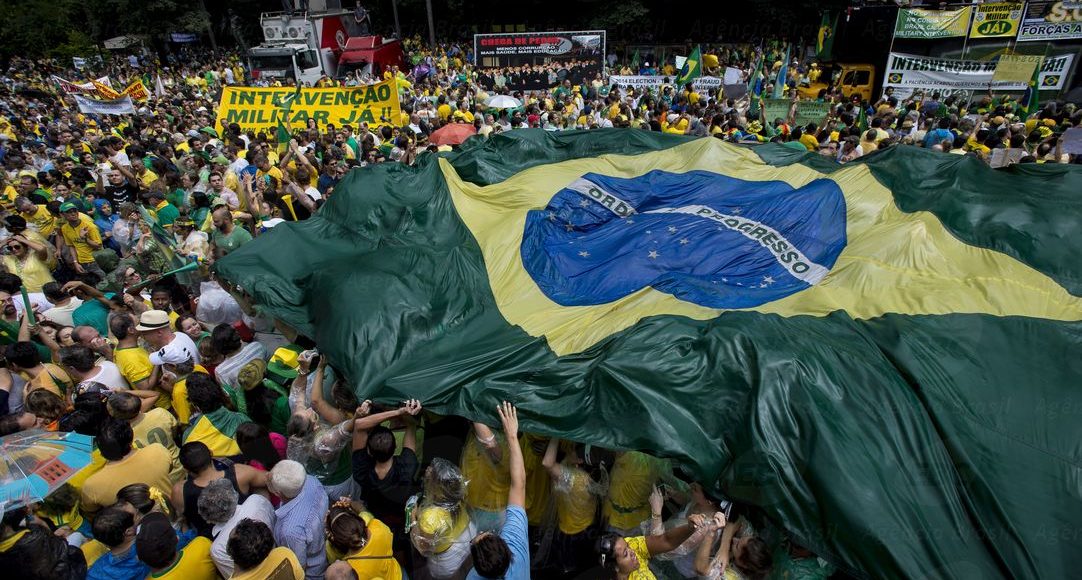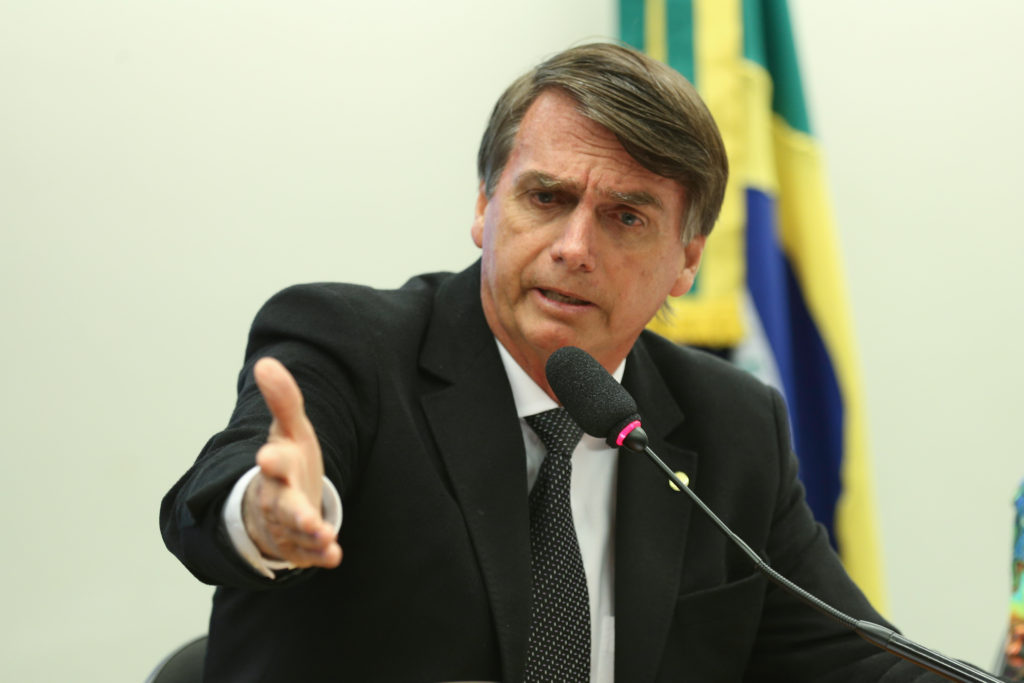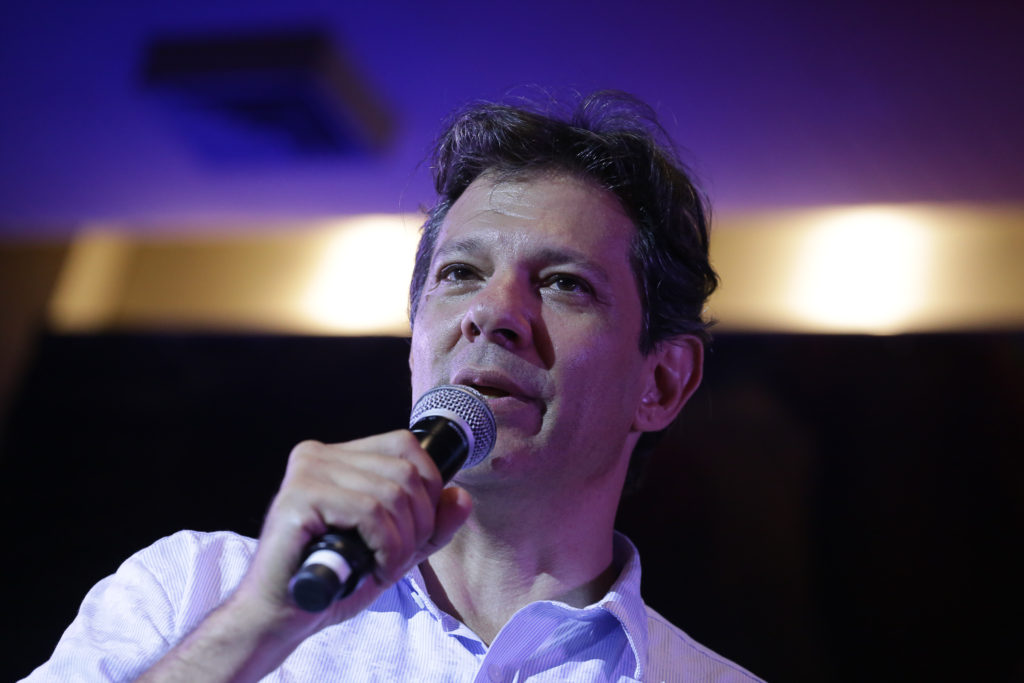Brazil’s Tumultuous Elections

On March 14 of this year, Rio de Janeiro councilwoman Marielle Franco was shot dead. An activist for the left-wing Socialism and Liberty Party (PSOL), Franco was an outspoken socialist, feminist, and advocate against homophobia and police brutality. Many have pointed fingers towards elements of the police themselves being responsible, arguing that her activism made her a target. Brazilian network Globo reported that bullet casings for nine-millimeter bullets used by the police were found at the scene, and in July, two former law-enforcement agents were detained in connection to the murder. In August, Minister Of Public Security Raul Jungmann stated that politicians and militia members have been implicated in the assassination. Despite this, six months later, the investigation is still ongoing.
Franco’s murder is part of a string of political violence that has occurred during the 2018 election season in Brazil. In March, the caravan of Luiz Inacio Lula da Silva, Brazilian President from 2003-2011, was shot at as he was on the campaign trail, seeking a third term. No injuries were reported. On September 6th, far-right Presidential candidate Jair Bolsonaro was stabbed in the chest at a campaign rally, though rather than being politically motivated, reports suggest the assailant was mentally disturbed.
It would not be unfair for one to view the attacks as emblematic of Brazil’s crumbling democracy, an issue which has been a primary focus of this campaign season. In 2016, then President Dilma Rousseff of the center-left Workers’ Party (PT) was impeached by Congress on charges of corruption relating to mismanagement of federal funds. To her right-wing detractors, the impeachment was a victory for the cause of anti-corruption, an issue that has consumed Brazil the past several years. For her supporters however, the impeachment was an illegitimate parliamentary coup, designed to end the PT’s 13 year hold on the Presidency. Lula, her predecessor and mentor, was to be the PT candidate again this year, in a move designed to bring back legitimacy to the embattled PT in the form of a widely popular figure. Lula left office in 2011 with an approval rating of 87%, and while that popularity has diminished greatly in the current polarized landscape, he was seen as the sure front-runner in this year’s elections.

Unfortunately for him, that election campaign came to a close this past August. In the summer of 2017 Lula was convicted on charges of corruption relating to bribes for contracts with the state oil company Petrobras, and sentenced to 12 years in prison. After a series of appeals, during which Lula was still campaigning while in prison, Brazil’s top electoral court ruled on August 31st that he was barred from running for the presidency. As with Rousseff, Lula’s political opponents have cast the ruling as another win against an institutionally corrupt establishment, but PT supporters and other leftists cast it as politically motivated, arguing that since the right lost to the PT in four consecutive elections, they have now resorted to undemocratic means to keep them out of power.
At the center of this issue of Brazilian democracy, however, is Jair Bolsonaro. Bolsonaro is the current Presidential front-runner, and while he’s received international attention over the past few months, especially following the knife attack on him, he’s been a continuous presence in Brazil since the 2016 impeachment.
A congressman since 1991, Jair Bolsonaro is, by reasonable measurements, a repulsive figure. In 2015, he said of a fellow deputy that she was not “worth raping; she is very ugly.” In 2011 he stated that he would not accept a gay son, and he would rather see his son die in an accident than be gay. His campaign has focused on issues of crime, which is certainly a pressing topic. In 2017, there were more than 63,000 homicides in Brazil, the highest rate ever, fueled by gang violence. Bolsonaro calls for de-emphasizing human rights, further militarizing police, and giving them wide jurisdiction to enforce the law. He is also decidedly anti-democratic, having praised the brutal military dictatorship that ran Brazil for two decades from the 1960s to the 1980s, and indicating he will not accept the election result if he loses.

Presidential elections in Brazil operate on a two round system, with the two highest placing candidates in the first round advancing to the second. Bolsonaro is not running as the representative of any of Brazil’s major parties, instead running under the banner of the small and previously irrelevant Social Liberal Party (PSL). Currently polling around 30% in the first round of voting, he is far and away the dominant candidate on the right. Geraldo Alckmin, the candidate of the center-right Brazilian Social Democratic Party (PSDB) , is lagging far behind, at only fourth place in the polls. He is supported by a coalition of right-wing establishment parties known as the “centrão”, including the Democrats, Progressistas, the Brazilian Republican Party, the Social Democratic Party, and more. Together, these parties control a sizable number of seats in the National Congress, but Alckmin’s candidacy has only been able to gather around 10% of intended votes, with no momentum in sight. It will be the first time since 1989 that the PSDB is not one of the two largest competitors in the Presidential election, having now been marginalized by the extremist Bolsonaro.
Instead, the other candidate that has emerged as a primary competitor in the polls is Fernando Haddad, Lula’s successor as the PT nominee for President. Like Dilma before 2014, Haddad was a previously unknown figure in Brazil until he was pushed to prominence through the force of Lula’s popularity. The former mayor of São Paulo, Haddad come from an academic background, and is a characteristic social democratic PT technocrat. But despite PT’s position as the establishment governing party from 2002 to 2016, Haddad has struggled to gain a clear lead, even as his main opposition is the highly controversial far-right Bolsonaro. He has risen in the polls since his designation as the PT nominee, but now sits around 21% in the first round, putting him firmly in second place, and in a statistical tie in the second.
Haddad is plagued by the phenomena of “anti-petismo”, or anti-Workers’ Party sentiment. Anti-petismo emerged under Dilma’s tenure, as an economic recession and government corruption brought hundreds of thousands into the street in 2015-16 to call for her ouster. When the right wing parties in Congress voted for her impeachment, eager to gain power after losing four elections in a row, they inadvertently set the Brazilian political order on fire. Dilma’s Vice President Michel Temer of the right-wing Brazilian Democratic Movement Party (PMDB, now called MDB), became President, having backstabbed his coalition partner to ally with the opposition. Temer has now been in power for a bit over two years, and his administration has been plagued by unpopularity and even more corruption than the previous PT government. Approval rating reaching as low as 3%, Temer has elected to govern on behalf of only the Brazilian economic elite, running an extractive administration, committing to austerity and granting resources to powerful lobbies like the agriculture and mining industries, at the expense of environmental protections.

Because of this corruption, and the fact that unlike the working class-oriented PT, Temer’s MDB and the rest of the centrão don’t have much in the way of a natural base, they have lost lots of support. Since the anti-petismo sentiment is still so strong, however, that support has almost entirely transferred over to Jair Bolsonaro. Henrique Meirelles, the MDB candidate for President, sits at only 2% in the polls at the moment. Other minor candidates on the right include João Amoêdo of the New Party (NOVO) and Alvaro Dias of Podemos, but despite their efforts to capture some of the anti-establishment sentiment that fuels Bolsonaro’s campaign (however misguided that may be), they too have struggled to gain any significant support. The left-wing and centrist options are a bit more diversified, though the past couple weeks especially has seen the bulk of support flocking to Haddad. Ciro Gomes of the center-left Democratic Labour Party (PDT) seeks to provide an option for those seeking a candidate ideologically similar to the PT, but without any of the baggage and corruption from the past few years. To some extent it has worked, but he has been stuck at around 10-13% in the polls, well behind Haddad, and it is unlikely he will pick up the momentum to advance to the second round.
It is expected almost all his voters will then transfer to Haddad. Marina Silva of the centrist and environmentalist REDE was a serious competitor in 2014 and was for a time the favorite to win that election is not faring so well this time around. She has high name recognition and low rejection rates and was sitting high in the polls months before this campaign began, but her party suffers from poor infrastructure and lack of funding, holding only a small handful of seats in Brazil’s 513-seat Chamber of Deputies. She has been reduced to only about 5% in the polls. The PSOL is running Guilherme Boulos, an activist and organizer with the Homeless Worker’s Movement, but he too struggles from funding issues and has not broken past 2%. The varying candidates on the left are attempting to be an alternative to the center-left establishment that the PT has represented for the past 16 years, as those on the right struggle to maintain the neo-liberal establishment that Bolsonaro threatens to blow apart. As none of these candidates has had much success, this has become an election between petismo and anti-petismo, the establishment center-left versus the anti-democratic far right. One half of the Brazilian political order has collapsed, and with second round polls tied and the distinctive authoritarian and militaristic tendency of Bolsonaro, the future of Brazilian democracy is uncertain.
Edited by Sarie Khalid
